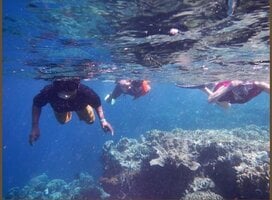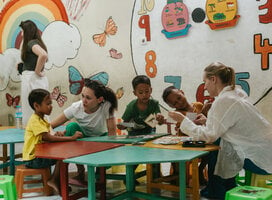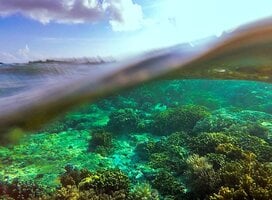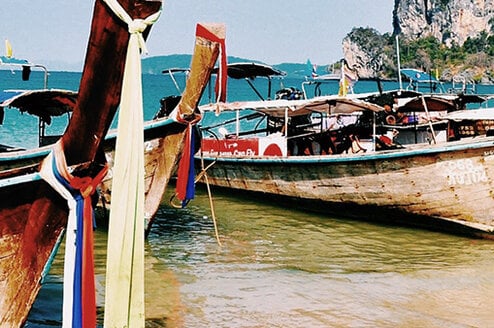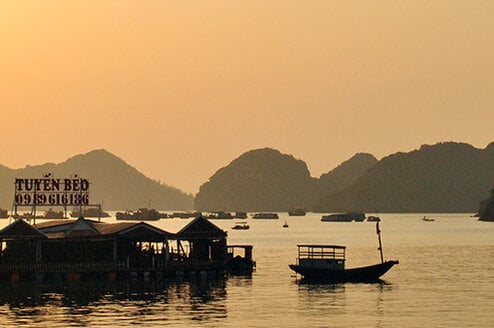High School Abroad in Indonesia
Imagine studying on one of the thousands of volcanic islands that make up the Southeast Asian country Indonesia. Indonesia is the world’s fourth most populous city and is home to hundreds of diverse ethnic groups. It has the second largest tropical rainforest in the world and some of the most beautiful white sand beaches, massive volcanoes, and lush, dense jungles.
Indonesia is also ethnically and linguistically diverse. This gives students plenty of opportunities to study in multiple areas, such as agriculture, conservation, and Asian Studies. Students will also find plenty of volunteer opportunities in Indonesia, from teaching English, wildlife and forest conservation, to medicine.
Photo credit: yopi priyatna.
Study
Students will find plenty of different options to study in Indonesia. Some main topics include;
- Agriculture: This is a big part of Indonesia’s culture. The main agricultural productions are rice, coffee, and tea. Students may have the chance to visit rice fields or coffee and tea plantations and study how they are produced.
- Asian Studies: With so many diverse ethnic groups in Indonesia, students will be able to study Asian culture in depth, whether that be focusing on one group, to studying multiple different groups.
- Healthcare: Students may study alongside local doctors and observe Indonesian medical practices.
- Conservation: Students may study the conservation of forests and biodiversity as well as wildlife conservation.
Volunteer
Some of the more popular volunteer opportunities include:
- Community Development: Students can participate in town and village reconstruction from natural disasters such as earthquakes and volcanoes, and take part in initiatives to make a positive difference in the community.
- Wildlife: There are a ton of wildlife volunteer opportunities in Indonesia, especially due to the fact that there are quite a few endangered species in Indonesia. Students may have the chance to volunteer at turtle sanctuaries or take care of the Komodo dragons, Sumateran tigers, the Sunda rhinos, and orangutans.
- Teach English: This is a great volunteer opportunity for students to help local villages and children with speaking and learning English.
Language Immersion
Indonesian is the main spoken language in Indonesia. For students interested in learning Indonesian, taking classes and speaking with locals is a great way for students to immerse themselves in the local culture. Language courses vary based on intensity and duration and are sometimes included as part of a larger program.
Travel Tours
This option is best for students who want to spend a few weeks traveling throughout Indonesia (and in some cases, more than one country) instead of staying in one place for the duration of their program. These tours are sometimes focused around a single academic theme, and often have students take part in service learning and volunteer work as a part of the itinerary.
Summer Programs
There are many summer programs to choose from in Indonesia. Doing a summer program is a great idea for students who don’t want to diverge from their studies during the school year, but still want to study or volunteer abroad. Some programs include teaching English, travel tours, and wildlife conservation.
Visa
In order to obtain a student visa, students can apply for a Social Visit 60-day visa. It's recommended to apply for visas at least 6 months in advance.
Popular Cities
Jakarta is one of the most popular cities in Indonesia, and is also the capital of Indonesia. It is known as the "big Durian."
The Indonesian portion of Borneo is home to a large variety of different wildlife species and incredibly diverse marine life. For students interested in endangered species, visiting and studying in Borneo is a great way to learn more about the subject.
Bali is one of the most popular cities in Indonesia. It’s known for its beautiful beaches, delicious and cheap food, and cultural rituals. The iconic island is one of the biggest cities in Indonesia, known for its tourism. This is great for students interested in agriculture as rice is their main crop. This is also a great place to volunteer in wildlife conservation.
Kuta is another popular city in Indonesia, known for its pristine white beaches that stretch for miles.
Costs
Living and traveling in Indonesia is relatively cheap. Food will cost around $1-3 a meal at restaurants, and even less at street food stands. Water is around 50 cents, and accommodation such as hostels can cost you around $3-5 a night. Travel between cities in Indonesia is quite affordable as well, especially if students take budget airlines.
Flights to Indonesia are usually inexpensive, especially if you’re flying from Southeast Asia. If you’re flying from the USA, flights can be as little as $400 one way, depending on when you fly and where you fly from!
Meals and housing may or may not be included in your study or volunteer program, so make sure to double check before arriving in Indonesia.
Housing
Students may choose to participate in a homestay or live in shared accommodation with other people in their program. Doing a homestay is a great way for students to culturally immerse themselves into the Indonesian culture by practicing their language skills and observing the family’s traditions and customs. Staying in shared housing is a wonderful way for students to meet others in their program and develop strong bonds and shared experiences.
Packing Tips
Indonesia has a tropical climate and is quite humid. The dry season is from May until September, and the rainy season tends to be from October until April.
During the dry season, pack loose fitting cotton clothing to keep yourself cool and dry. During the wet season, pack rain boots and a rain jacket. Packing clothes that can be layered is the best way to prepare for any type of weather.
Travelers should make sure they’re staying hydrated and protected from the sun, especially in the heat.
Health
There are no required vaccinations for Indonesia; however, students must be up to date on any routine vaccinations before arriving in Indonesia. Talk to your health care provider to decide what’s best for you, especially if you plan on traveling to multiple destinations.
Safety
Indonesia is considered to be a very safe country. However, there are threats of terrorism in certain areas of Indonesia, such as Papua. Travelers should try to avoid unnecessary travel to Papua as well as Northern Sumatra.
As you would in any country, be wary of walking around alone at night, and never carry your personal belongings with you. Be careful of petty theft in public areas as well.
Because of Indonesia’s geographical location, it’s prone to earthquakes. Students should take necessary precautions before arriving in Indonesia.



